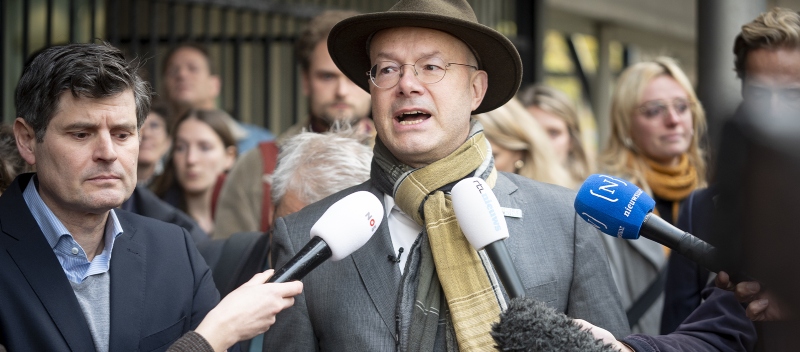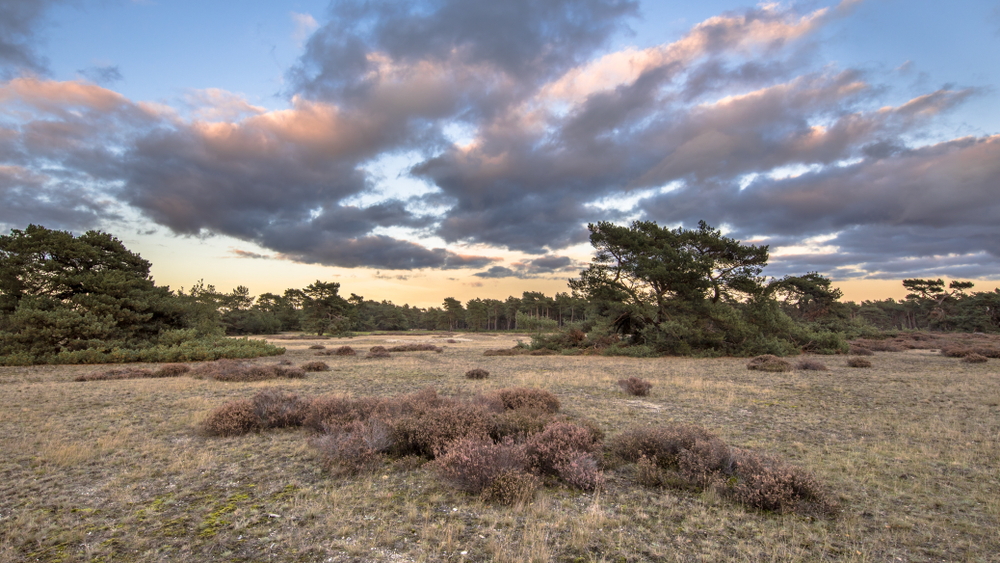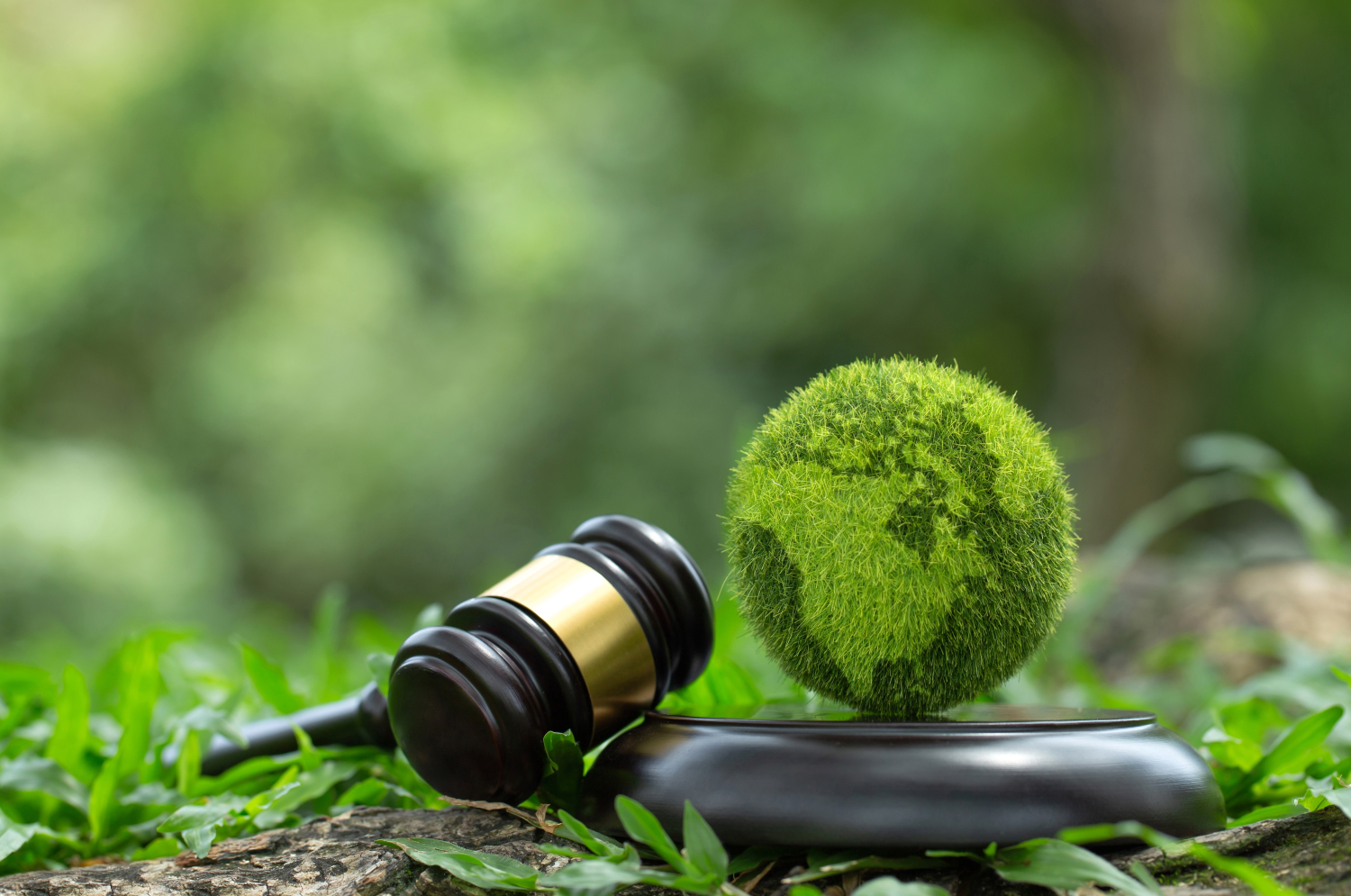Should the Dutch state take more drastic action to cut nitrogen emissions faster? Next week, a court is due to give its ruling on this in a lawsuit brought by Greenpeace (Wednesday, 22 Januari at 10 a.m., to be followed via live stream). The case is only the latest in a series in which a lobby organization has tried to enforce better compliance with the rules on nature, climate and the environment through the courts.
Law lecturers Edwin Alblas and Chiara Macchi explain what is going on.
The Law chair group cannot complain about a lack of topical talking points. Examples include the recent case that Milieudefensie brought against Shell on reducing its CO2 emissions (Milieudefensie lost on appeal) or the lawsuit Greenpeace filed against the Dutch state about the lack of protection against climate change for the inhabitants of Bonaire. Then there are the many minor court cases about issues such as the use of paintball guns against wolves who are not afraid of humans, or the toleration of nursery cages in pig farming (the courts ruled that neither was allowed). The Law chair group calls this phenomenon ‘strategic litigation’: lawsuits on a specific issue are filed as a way of forcing companies and governments to comply more broadly with national and international legislation and agreements.
Are lobby groups going to court more often, or does it only seem so? And is that happening more in the Netherlands than elsewhere?
Alblas: ‘Not all court rulings are published, which makes it difficult to quantify things. Even so, in our Effective Nature Laws research project, we asked some 60 NGOs about this and they told us they are going to court more often. However, they play down the impact. For example, government bodies rarely accept the initial court ruling. They nearly always lodge an appeal (or an appeal in cassation) to gain time. The Urgenda climate case is a good example. It took nearly six years of litigation before the Dutch state finally agreed to reduce greenhouse gas emissions faster to comply with the UN Climate Convention.’
Government bodies rarely accept the initial court ruling
Macchi: ‘I’m doing research with a PhD candidate on climate lawsuits against companies. That shows it’s an international phenomenon. Not surprisingly, it is most common in countries where the democratic system functions properly. The Netherlands is one of the trendsetters. Relative to the population size, the courts are used relatively frequently here to put pressure on government bodies and the private sector.’
Does science plays a major role in these cases?
Alblas: ‘Definitely, although the form that takes is changing. In the first climate cases, such as the Urgenda case, scientific proof of climate change had to be provided plus evidence that it is a problem. But in Climate Case Ireland, which I was involved in from 2018 to 2020, there was consensus on that among both the claimants and the Irish government. That case revolved around what science had to say about the precise effects and responsibilities for actions. But court cases about pesticides, for example, are often still about the basic issues: what does science tell us about whether pesticides cause cancer or Alzheimer’s disease, and how does that relate to reports by the EFSA (European Food Safety Authority) and CTGB (Dutch Board for the Authorisation of Plant Protection Products) saying the pesticides are safe? The role of scientific proof is evolving constantly.’
Macchi: ‘The case of Milieudefensie versus Shell (which Milieudefensie lost on appeal, ed.) showed how difficult it is to take generic, widely accepted scientific insights and turn them into arguments that are sufficiently convincing legally in a specific case. That was apparent in the Shell case. The court of appeal stressed it was convinced by the generic scientific arguments about the association between CO2 emissions and climate change, but legally there were insufficient grounds to force this one particular oil and gas company to reduce its CO2 emissions by the percentage requested by Milieudefensie.’
The Schoof Cabinet’s plan, set out in the coalition agreement, is to make it harder for ideological lobby groups to challenge political decisions in court. What do you think of that?
Alblas: ‘Certain environmental groups now have so much legal expertise that they are becoming quite successful in challenging the government in court. I can understand politicians being a bit annoyed that MOB for instance, an environmental lobby group that is very small but also very skilled, manages to defeat the State Advocate time and time again, which employs the most expensive lawyers in the Netherlands. But trying to restrict access to the law in response is a highly antidemocratic reflex. You can’t just do that, because the Netherlands ratified the Aarhus Convention in 2004. Regarding environmental issues, this convention sets rules on such matters as access to information, a say in decision-making and access to the courts.’
But as a matter of principle, does the Cabinet have a point with its criticism that these cases are increasingly letting judges take decisions that should be for politicians?
Macchi: ‘No, and I find the fact that the Cabinet is saying such things a dangerous development. It is politicians who determine the laws and rules. The courts only check afterwards whether everyone — including the government — is keeping to the rules. That is the essence of the rule of law: citizens have to keep to the law, but so does the government. That’s fundamental. It is not as if ordinary members of the public and NGOs win cases against the government easily. They only win if the law is on their side.’
Trying to restrict access to the law in response is a highly antidemocratic reflex
Alblas: ‘In my opinion, there’s only one reason why you might consider restricting access to the law, namely if we had loads of pointless cases the main effect of which was to clog up the legal system. But that isn’t what is happening. Lobby groups wouldn’t win so often if they were bringing pointless cases. As the Council for the Environment said last summer, politicians only have themselves to blame for the increasing tendency to litigate about the environment: the government doesn’t comply properly with the legislation and regulations. The lawsuits will stop once the government stops making policy aimed at makeshift solutions.’

 November 2024 – Donald Pols, the director of Milieudefensie, speaking to the media at the court in The Hague. The court ruled that Shell cannot be obliged to reduce its CO2 emissions by specific percentages. Photo ANP/Jeroen Jumelet
November 2024 – Donald Pols, the director of Milieudefensie, speaking to the media at the court in The Hague. The court ruled that Shell cannot be obliged to reduce its CO2 emissions by specific percentages. Photo ANP/Jeroen Jumelet 

